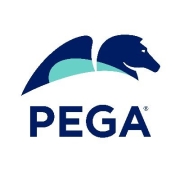Business Rules Management solutions empower organizations to define, deploy, monitor, and maintain the business logic used in systems and processes. These solutions help streamline decision-making, improve consistency, and ensure compliance with regulatory standards.
The process of effectively managing business rules can lead to significant improvements in operational efficiency. Business Rules Management solutions offer a systematic approach to executing policies and adapting to changes without requiring extensive reprogramming. This centralized control aids in maintaining up-to-date business logic across different applications and platforms while ensuring compliance with industry regulations and standards.
What are the critical features?In financial services, Business Rules Management is used to automate loan origination, ensuring that credit checks and approval processes adhere to regulatory standards. In healthcare, these systems manage patient care protocols, ensuring treatments follow best practice guidelines while maintaining compliance with health regulations. Retailers deploy these solutions for pricing strategies and inventory control to adapt to market changes swiftly.
Business Rules Management is critical for organizations seeking to enhance decision-making accuracy and maintain regulatory compliance. These solutions provide the necessary framework to manage complex rules systematically, resulting in streamlined operations and consistent application of policies.













A business rules management system (BRMS) is a type of software solution that gathers business decisions into business rules, which are then automated across applications. Decision logic specifies the details of a decision, meaning what combination of data leads to what result. After defining the decision logic, you need to apply rules to that decision.
Business rules are directives that define or restrict an organization’s business activities. Business rules provide the guidelines on how processes need to be performed.
The business rules management system (BRMS) defines, deploys, executes, monitors and manages business rules and decision logic. The system automates rules and decision making across processes. The BRMs identify the relationships between the business rules and associate the rule with the solution that executes the function.
This saves companies from having to embed the rules as code. The BRMS manages the rules separate from application code, thus allowing rules to be applied to multiple applications. The system also allows the changing of rules without disrupting application processes.
A BRMS helps companies to simplify the definition and management of the rules that guide the organization’s workflows. By externalizing the rules outside of code, these systems can empower businesses to achieve more agility, productivity, and organizational efficiency.
Typically, business rules are embedded in the business logic or as part of legacy software applications. This causes several problems:
Thus, business rules management systems have surged as a software response for these challenges. They work as a central repository of all business rules for the system. By having the rules outside the application code, users and IT staff can collaborate and update the rules in real time. This saves users from having to depend on IT staff to make changes on the business rules when needed. BRMS tools empower the users to write and test the business rules themselves.
A necessary part of business rules management (BRM) is that the organization needs to define the requirements for what will later become business rules. This task is sometimes a challenge.
Organizations usually consider these three thing in order to define the requirements of their business rules:
These three steps are done more easily with the help of a business rule management system. The BRMS captures the decision logic, turning it into business rules without the need for code.
In order to choose the right BRMS, you need to know your company’s decision process. Also, you should consider your specific needs for improving business rules. That being said, there are a number of features you should look for when choosing a BRMS:
Not only IT companies benefit from a business rules management system. Every business uses rules in some form. The most common cases are:
A business rules management system empowers your organization to streamline the definition of business rules and to update across environments, creating a single repository.
Here are four reasons you should implement a BRMS: